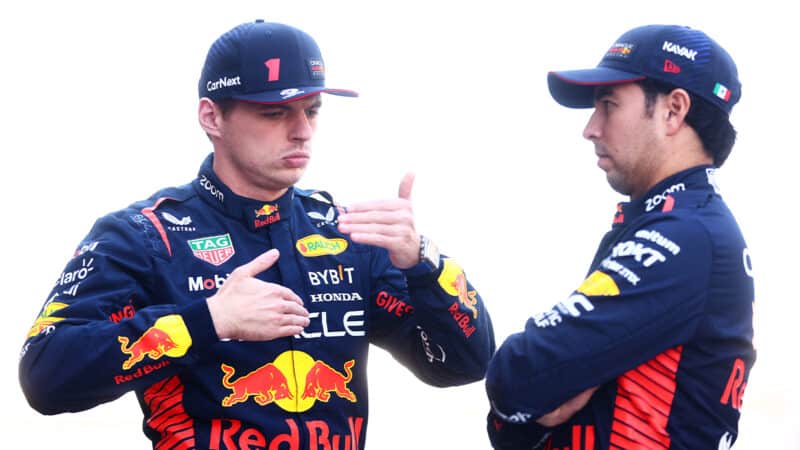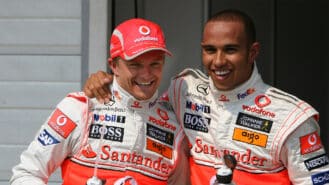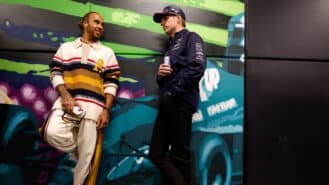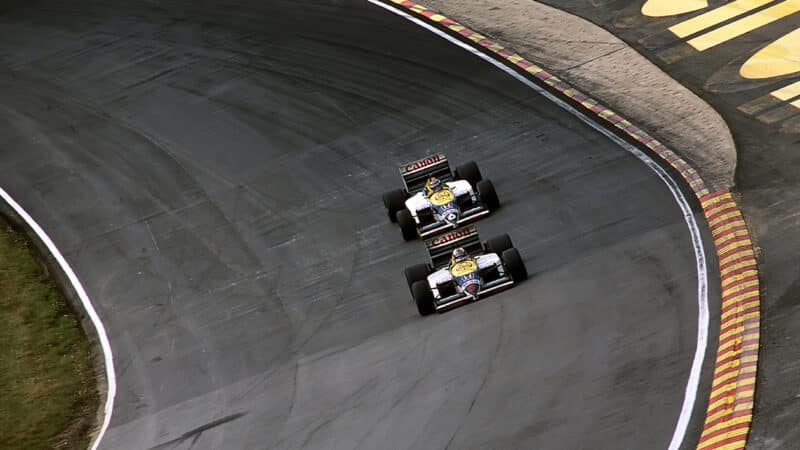So, although wise observers were never convinced by either rumour, and consequently felt sure that Alonso would remain at Aston Martin and Hamilton at Mercedes, most F1 fans, many F1 pundits and a fair number of F1 insiders remain critical of Red Bull’s driver selection policy, nonplussed as they are by the actuality that the principals of one of the most dominant teams in F1 history are content to retain a driver such as Perez, good but not great, in one of their world-beating cars.
I take a different view. If you have a car advantage, and a feistily brilliant number-one driver in whose direction your whole team is devoted to channelling the entirety of its race-winning efforts, as Red Bull has in excelsis, the last thing you need is another feistily brilliant driver alongside him, ready and eager to cause him trouble. The majority of fans and pundits will always disagree with that way of thinking, because it amounts to an unadventurous approach, but the fact is that drivers’ world championships are most reliably won by great number-one drivers supported by capable number-two drivers who are thankful for their opportunity to race a car better than, and earn money in excess of, what their talent would otherwise attract.
The likes of Eddie Irvine, Rubens Barrichello, Giancarlo Fisichella, Felipe Massa, Mark Webber, Valtteri Bottas and now Checo Perez – each of them very good but not truly great – all owe their decent win tallies and hefty bank balances to various teams’ adoption of and adherence to exactly that circumspect policy. You may cite Ayrton Senna/Alain Prost as a counterpoint to my perspective, but in fact Senna/Prost makes my point. Yes, both those geniuses won world championships together for McLaren, but in each case they benefited from a gargantuan car advantage, and in any case the whole house of cards came tumbling down spectacularly thereafter. Senna then won not one but two drivers’ world championships in less dominant McLarens, supported by a capable and compliant number-two driver, Gerhard Berger, again validating my point of view.
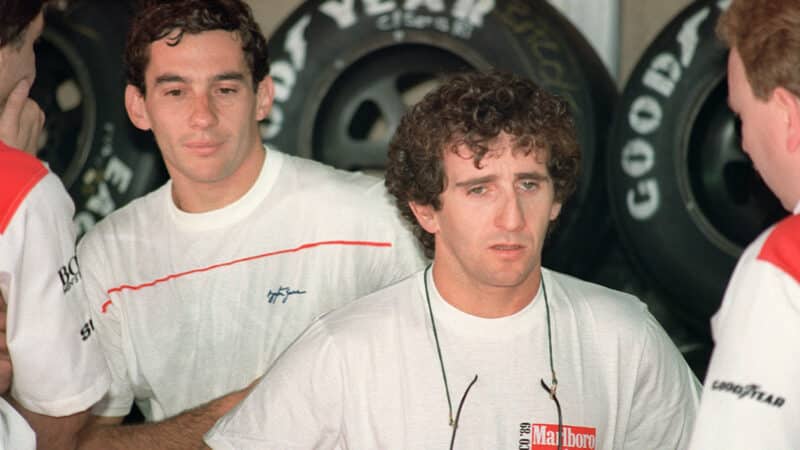
The friction between Senna and Prost showed why two Alpha team-mates can be a risky choice
Pascal Pavani/AFP via Getty Images
In my direct experience, as an F1 team member, the ideal driver line-up among all those I worked with was Lewis Hamilton/Heikki Kovalainen at McLaren in 2008. Kovalainen was proper-quick in quali, which meant that Hamilton had to dig deep to match or beat him, which in turn meant that we knew that they had got the best out of the car on Saturdays. But then on Sundays Lewis stepped up a gear, which meant that Heikki rarely got in his way and almost never nicked points off him. Massa very nearly won the drivers’ world championship for Ferrari that year, scoring 97 points to Hamilton’s 98. Kimi Räikkönen (Ferrari) was third, on 75. Kovalainen was seventh, on 53. You do not need to be a maths genius to see that Heikki nicked fewer points off Lewis than Kimi nicked off Felipe.
